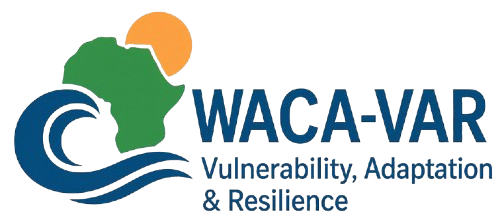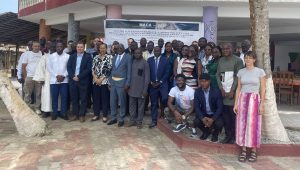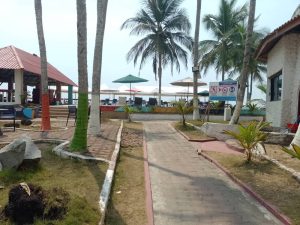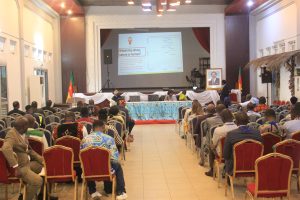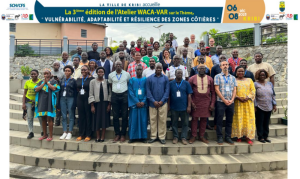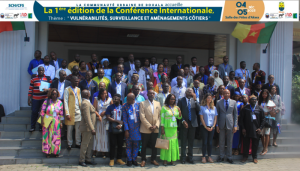3rd edition of the WACA-VAR Workshop
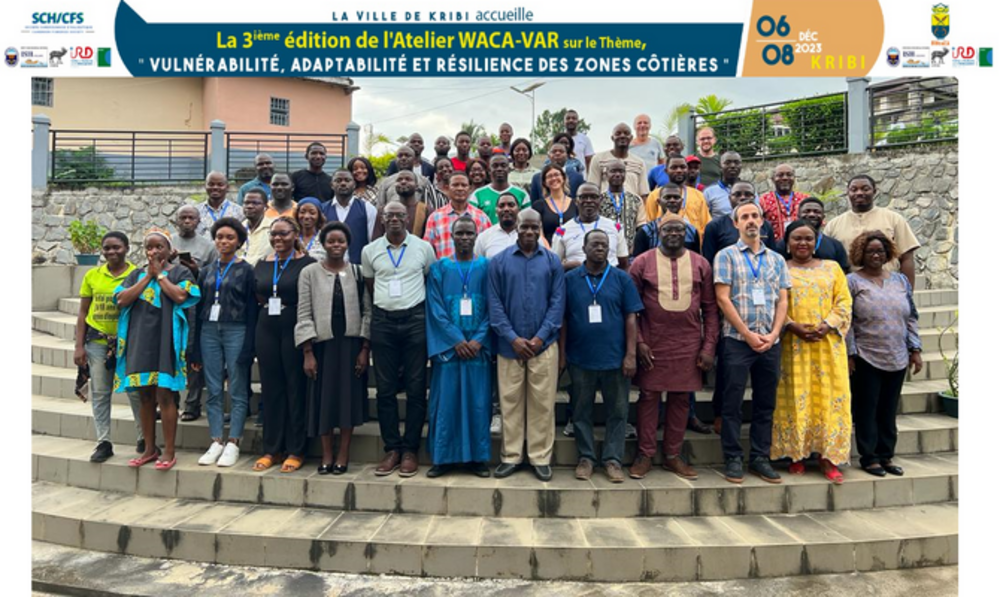
Kribi (Cameroon) – December 6 to 8, 2023
In order to map the vulnerability of coastal areas in Central and West Africa and to disseminate research findings on the management, planning and development of these areas, more than a hundred researchers, professionals, students and public decision-makers from several countries (Cameroon, Gabon, Nigeria, Ghana, Côte d’Ivoire, Benin, Senegal, France), as well as several international organizations (World Bank, AFD, IRD) took part in the 3rd edition of the WACA-VAR workshop, organized by CWCS and its partners (CFS, APCAM, IRD, ACRITEE).
During the workshop, the various discussion sessions provided an opportunity to take stock of progress made in understanding vulnerability in Central and West Africa. Indeed, the coastal zones of Central and West Africa are subject to an intensification of phenomena such as coastal erosion, flooding, sea-level rise and pollution, resulting in loss of human life, damage to property and infrastructure, and damage to critical ecosystems and their resources. A number of major regional studies point to an increase in these risks, amplified by strong growth in urban populations and the development of economic activities in a changing climate. Consequently, the ability to anticipate, plan and strategically manage the development of coastal zones in Central and West Africa is crucial to preventing potential risks.
This workshop follows the first two editions of the WACA-VAR workshops held respectively in Dakar (Senegal) in 2019 and in Cape Coast (Ghana) in 2021, with the objectives of: (i) improve knowledge on current and future vulnerabilities of West and Central African coasts, (ii) provide new data, information and tools that will be useful to investors, local and regional stakeholders (including coastal communities), and (iii) develop the capacities of local and regional stakeholders (including postgraduate students (i.e. MSc, PhD and Postdoc) through the training of current managers, future experts of Central and West African coasts and young researchers.
In addition to analyzing the current situation and planning future activities, this edition also provided an opportunity to train all participants in the use of new environmental and satellite data analysis tools.
